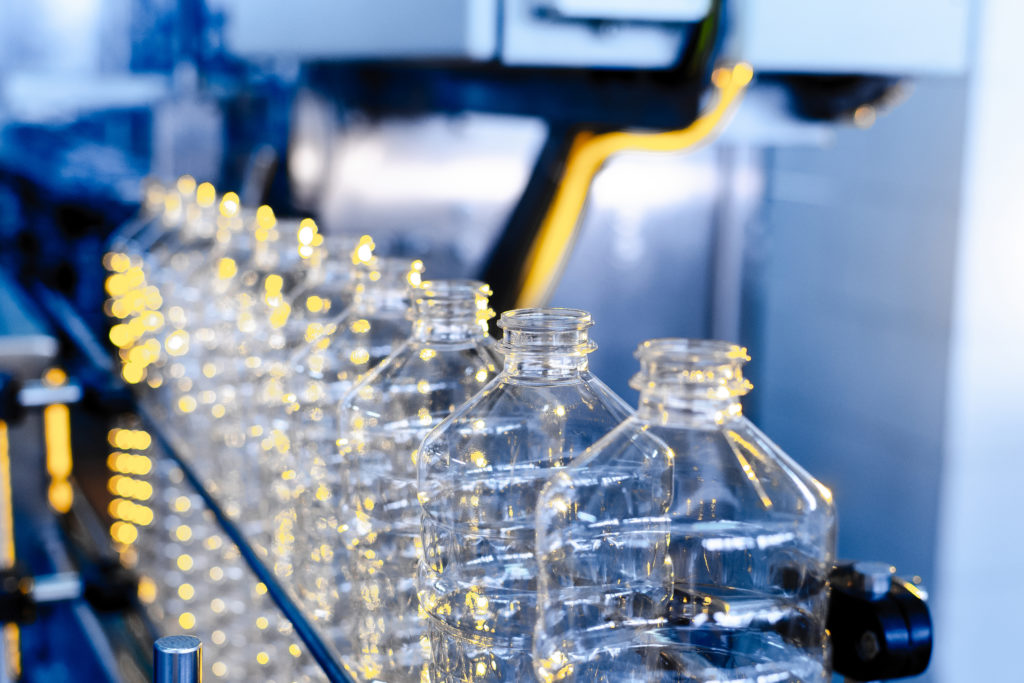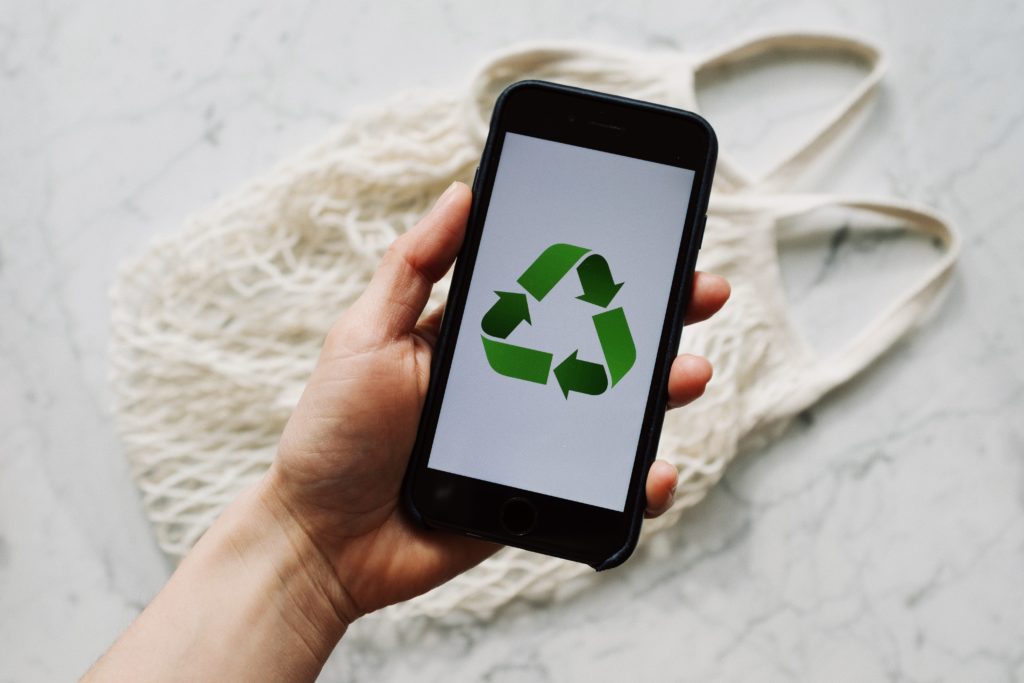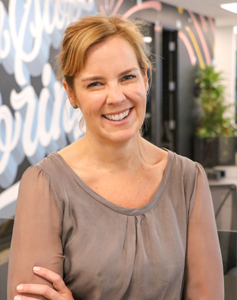When COVID-19 arrived, it brought an unusual and unprecedented shift in the way that consumers and businesses seemingly deprioritized sustainability. As the threat of infection swept across the world, consumer patterns shifted to essential goods and personal safety. At the same time, economic declines and unemployment pushed consumers to tighten purse strings. Retailers and suppliers were forced to respond by creating experiences that supported their associates and consumers to put health and safety first. This spurred a “pandemic use” of plastics and a lack of diligence in recycling that made environmentalists shudder at the years of work put against building the narrative with consumers and fighting plastic pollution to limit single-use and other plastic waste. The International Solid Waste Association, which represents recycling organizations in over 100 countries, indicates that America alone has seen an estimated 250-300% increase in the consumption of single-use plastic since the onset of the pandemic. While the majority of this is due to the increase in necessary PPE, single-use plastic bags, containers and utensils for take-out and packaged produce are also culprits. Additionally, the rise in e-commerce purchases has increased the amount of non-recyclable plastics to secure packages for shipping and delivery. If that is not enough, the pandemic also caused a crash in oil prices, which made the cost of producing plastics come down, incentivizing companies to purchase inexpensive plastics instead of investing in recyclable alternatives.
Sustainability Then and Now
Prior to the pandemic, consumers around the world were focused on sustainability; reuse and recyclables, organic and natural food products, to do their part in managing the effects of climate change. Millennials led the charge by voting with their wallets, challenging retailers and suppliers to provide sustainable products and packaging solutions. Businesses were stepping up in more significant ways as they hired sustainability managers and built teams to direct their initiatives and sustainability agendas to fight the impact of globalization on the environment. There was considerable momentum for businesses to increase investments into sustainable product innovation, recyclable packaging alternatives, circular supply chains and responsible sourcing solutions to address consumer demands. Businesses anted up with aggressive sustainability platforms to strengthen their purpose and to support the United Nations, The Consumer Goods Forum, and other NGOs in working for a sustainable future.
Sustainability in the Aftermath
As the pandemic runs its course, many environmental groups are grasping at lost opportunities. They are working to maintain the level of momentum that was in place pre-COVID as the current world economy sees a blip in sustainability progress made in this area. But are their worries grounded? What is the outlook for sustainability? Have consumers really fallen off the proverbial wagon in favour of products that do not support sustainability? Are retailers and suppliers exploiting cheaper alternatives, and turning back their focus to old ways of generating excess waste, forgetting about the importance of sustainability as it relates to a cleaner and better earth? At first glance, it may look this way, but the pandemic has created a change movement that is imparting more aggressive views on sustainability that will likely continue to shape the future. While some environmentalists saw doom and gloom because of excessive plastics use and other gaps across fragile economies, others discovered a silver lining in the darkness shrouding the world as COVID spread. Carbon emissions have decreased, and air pollution levels are down. In Bogotá, Colombia, for example, air pollution decreased by 68% in April and 61% in Lima, Peru. Electricity use was also down by 6%. Wuhan, Delhi, Madrid, Los Angeles, and many other cities globally also logged massive reductions in harmful air pollutants. Due to these exceptional circumstances, some governments are taking the opportunity to advance sustainability agendas in their regions to further impact local environments. Similarly, businesses, both local and global, are joining forces with them (e.g. Natura, Coca-Cola, Tetrapak, who have all donated to recycling efforts in Chile).
In efforts to further leverage opportunities to future proof their businesses and the global impacts of climate change, a group of 155 global and local companies from 34 sectors, across 33 countries have signed a statement urging governments globally to align their COVID aid and recovery efforts with the latest climate science. These companies also committed to using science-based metrics to accelerate the transition to a green or zero-carbon economy as a part of this initiative. Signed in mid-May, this was the largest UN-backed CEO led initiative ever in driving change in support of climate science. Henkel CEO Carsten Knobel said, “Now, we need to invest in innovation, scale up the solutions we already have and work with our partners along the value chain towards climate-neutrality. To achieve that, we have set ourselves ambitious, science-based targets”.
As this initiative was secured, suppliers and retailers’ statements have created a domino effect around the world. Examples of their commitments and partnerships in support of sustainability have flooded the news as businesses work together to help reshape broken economies and strengthen efforts to create a better and greener world.
- P&G’s Gillette announced a partnership with CVS pharmacies, Terracyle (innovative waste management company) and Fisher House Foundation (Veteran support organization) on a razor and packaging recycling program.
- A.S. Watson Group pledged to reduce its plastic waste and support the use of sustainable palm oil.
- General Mills launched a 3-year regenerative dairy pilot in partnership with Foremost Farms (dairy cooperative) and Understanding Ag (an agricultural consultant).
- Mondelēz announced a packaging partnership with Philadelphia Packaging to utilize recyclable plastic containers in the European cream cheese market.
- Amazon announces $2 billion climate pledge fund to invest in companies building products, services, and technologies to decarbonize the economy and protect the planet.
- Fonterra deployed a dairy payment program for New Zealand farmers who meet co-op set sustainable targets.
- Dole is seeking partnerships with start-ups and innovators to carry out its six brand promises around sustainability as part of its ‘Sunshine For All’ campaign.
- Coles Australia announced grants to 12 small and medium-sized enterprises in support of sustainability and reduction of bush fires.
- Diageo announced that their iconic Seagram’s 7 bottles will be made from recycled plastics (PET).
- SC Johnson announced a new Mr. Muscle bottle made from 100% ocean-bound plastic through their global partnership with Plastic Bank. The Plastic Bank will support the opening of 509 plastic collection points in several countries across Indonesia, the Philippines, Thailand, Vietnam, and Brazil.
- Walmart’s sustainability efforts take to the seas with MSC-certified sustainable private brand canned Tuna.
- Unilever announced a new set of climate goals and will put carbon labels on all 70,000 of its products.
- Alvalle gazpacho, a PepsiCo brand opened a sustainable plant for production in Murcia, Spain. The plant will operate more efficiently by reducing water consumption by 30% and energy consumption by 20%.
In Closing
The pandemic shed light on the interconnectedness of the world and exposed the fragility of our systems and processes. Gaps in the supply chain meant essential goods were not readily available to consumers. In other cases, a glut of some resources were wasted due to prohibitive cost in distribution or an inability to get them to the market quickly enough. However, it seems exposure to the world’s vulnerabilities has created a movement toward a new level of sustainability that has fueled a ground swell of partnerships between governments and business partners, suppliers and retailers, packaging companies, non-profits, and others to where it is certain that sustainability has not been forgotten.
Consumers continue to seek sustainable claims and packaging options. Research conducted by FMCG Gurus, a market research firm, indicates that 60% of global respondents polled during the pandemic say they are more concerned about the environment than before and 42% indicate they are more likely to maintain a sustainable lifestyle due to health and wellness concerns post-COVID. While more attuned to lower cost options, consumer voices suggest that they will continue to challenge retailers and suppliers to make cost-effective, sustainable product and packaging options available to them. This will only be possible if businesses work together to align their strategic agendas around sustainability and funnel them throughout their organizations.
Our research shows that while sustainability continues to grow in importance around the world, there is a disconnect between purpose and sales when it comes to sustainability. In order to drive progress on sustainability, a commitment from partnering stakeholders is required. Fostering the right behaviours at a commercial level will empower sustainable thinking; the prioritization of healthy and sustainable product offerings and innovation at competitive prices, promotion of responsible marketing practices, leveraging sustainable sourcing opportunities and more. As businesses begin to take action beyond COVID, they will need to respond to difficult questions as they face new challenges in the race to make our world a better place. In the end, people are the core purpose of all consumer-focused businesses. While bringing sustainable products and services to the people of the world will help to create a better and greener world, it can only be done if everyone does their part and works to make it better together.
This blog was written and contributed by:
Annaliese Jagusch
Chief Customer Officer
Advantage Group International
This article was originally published on the Advantage Group website



